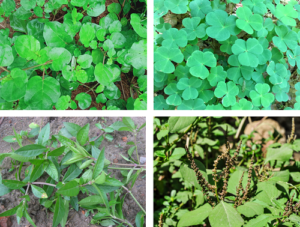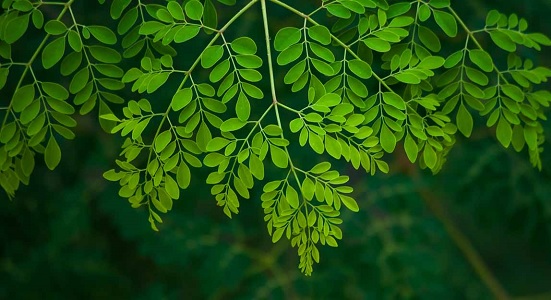N.B. Nair
Kannur, Kerala (ISJ): A group of biologists from several colleges in Kerala have found, plant-based food supplements could ward off infectious diseases including COVID-19. In a study published recently, the biologists found 85 percent of the immune system is maintained by plant-based food supplements, which increase beneficial intestinal bacteria. According to WHO, COVID-19, caused by the coronavirus, infected people with low immunity. Minerals like zinc, magnesium, micronutrients, herbal foods and vitamins C, D and E and plenty of water promote health and are highly helpful to overcome the infection. Many studies revealed that COVID-19 infection could be prevented by the powerful antioxidant glutathione and bioflavonoid quercetin, a kind of plant pigment, and plant-based foods increase human immunity.
“Leafy greens and vegetables play a very important role in food and nutritional safety. Green leafy vegetables are an excellent source of vitamins, phenolic compounds and minerals. Calcium and iron are rich in leafy vegetables than that of staple food grains. Folic acid is also present in leafy vegetables. Different leafy greens, especially Moringa oleifera leaves, contain a high amount of folic acid compared to other leafy and non-leafy vegetable plants,” says the study.
The study was published by Annals of Phytomedicine recently. According to the researchers, the study also finds mention in the World Database of COVID 19.
“The finding is the result of a five-year study funded by the federal Department of Science & Technology (DST-FIST). The researchers used the data collected during this period, using Gas Chromatography Mass Spectrometry (GC-MS) and UV-Visible Spectrophotometer instruments. GC-MS helps to find the compounds in different plants,” Dr A.K. Abdussalam, the lead author of the study told Indian Science Journal.

“We co-related the data emerged from the study of Dr. M.K. Ratheesh Narayanan (Co-author of the present article) titled "Gender dimensions of wild food management in Waynad", where the tribal population consume traditional leafy greens grown naturally in the forest area. We found, incidents of COVID-19 among those tribals and people in the rural areas were the lowest. We have also made a social survey among these sections of the people and found, comparatively, they were less affected by the pandemic and in cases of infection, those were not severe,” Dr. Abdussalam explained how they arrived at the conclusion.
The researchers said, a well-balanced diet has lower risk for chronic illness and pandemic diseases. The diet should contain variety of fresh vegetables rich in fibre, minerals, protein, antioxidants and vitamins. Besides, proper hydration with the help of pure water is also key carry the nutrients to blood and oxygen to cells.
Micronutrients are essential in the synthesis of DNA and cell proliferation, which is important in the regulation of unusual and adaptive immune reactions, cell signalling and immune cells production. Each micronutrient plays a very important role against diseases and to maintain body immunity. Of the micronutrients, magnesium is the key element in strengthening the immune system, especially lymphocytes or white blood cells. Micronutrients are also a key source of energy for the synthesis of adenosine triphosphate (ATP), popularly called the cell’s energy currency. Without their presence, cells cannot function properly. Oxygen delivery from our lungs to the entire human body is controlled by haemoglobin in the blood.
Since the outbreak of COVID-19 in India on 30 January, 2020, the country faced two waves of infection, which took the lives of 4,40,533 people as on September 5, 2021 according to federal Health & Family Welfare. Several states still continues to grapple with higher incidence of the infection, with Kerala contributing more than 50 percent of the daily caseload. Experts have warned a possible third wave of infection after the forthcoming festive season, unless strict preventive measures are adopted.
The researchers besides Dr. A.K. Abdussalam included, Dr. P.K. Prajith, , Dr. K.P. Prasanth, Dr. P.V. Jyoti, Dr. A.P. Anu, Dr. K. Azeez and Dr. K.K. Ratheesh Narayanan from different colleges in northern Kerala.
Image courtesy: Dr. A.K. Abdussalam


